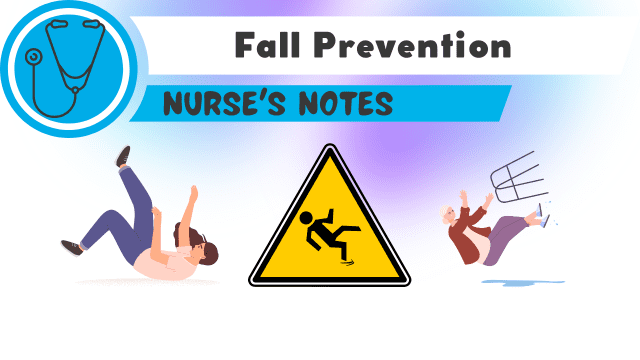Fascination About Dementia Fall Risk
Table of ContentsGetting The Dementia Fall Risk To WorkThe Main Principles Of Dementia Fall Risk The Best Strategy To Use For Dementia Fall RiskThe Single Strategy To Use For Dementia Fall RiskHow Dementia Fall Risk can Save You Time, Stress, and Money.
Analyzing autumn threat helps the whole healthcare team develop a much safer environment for every individual. Make certain that there is a marked location in your clinical charting system where team can document/reference scores and record relevant notes related to drop avoidance. The Johns Hopkins Autumn Danger Evaluation Tool is one of several devices your personnel can utilize to assist prevent damaging clinical events.Person falls in medical facilities prevail and devastating negative events that continue regardless of decades of initiative to lessen them. Improving communication throughout the assessing nurse, treatment team, person, and client's most entailed family and friends might enhance autumn prevention efforts. A team at Brigham and Women's Healthcare facility in Boston, Massachusetts, sought to establish a standardized fall avoidance program that centered around improved communication and person and family members interaction.

The technology team stressed that effective implementation relies on patient and team buy-in, assimilation of the program right into existing process, and fidelity to program processes. The team kept in mind that they are facing how to make sure continuity in program execution during durations of crisis. During the COVID-19 pandemic, as an example, a rise in inpatient falls was linked with limitations in individual involvement along with limitations on visitation.
See This Report about Dementia Fall Risk
These incidents are generally thought about preventable. To implement the intervention, organizations require the following: Accessibility to Fall TIPS resources Fall ideas training and re-training for nursing and non-nursing personnel, including new nurses Nursing workflows that enable client and household interaction to conduct the falls analysis, ensure use of the prevention strategy, and carry out patient-level audits.
The outcomes can be highly detrimental, typically speeding up individual decline and causing longer healthcare facility remains. One study approximated remains enhanced an additional 12 in-patient days after a patient loss. The Autumn TIPS Program is based on interesting people and their family/loved ones throughout three main procedures: evaluation, personalized preventative interventions, and bookkeeping to make certain that clients are participated in the three-step autumn avoidance procedure.
The client analysis is based upon the Morse Fall Range, which is a verified loss danger assessment device for in-patient healthcare facility settings. The range includes the 6 most typical factors individuals in healthcare facilities drop: the individual fall background, high-risk problems (including polypharmacy), use IVs and other outside devices, psychological status, gait, and movement.
Each threat aspect relate to one or even more workable evidence-based interventions. The registered nurse creates a strategy that incorporates the treatments and is noticeable to the care group, person, and household on a laminated poster or published aesthetic aid. Registered nurses develop the plan while consulting with the individual and the person's household.
The Of Dementia Fall Risk
The poster works as a communication tool with other members of the client's care team. Dementia Fall Risk. The audit element of the program includes evaluating the client's understanding of their danger elements and prevention strategy at the system and health center degrees. Registered nurse champions conduct a minimum of five individual meetings a month with people and their households to look for understanding of the fall prevention plan

An approximated 30% of these falls result in injuries, which can vary in seriousness. Unlike various other unfavorable occasions that need a standardized medical response, fall avoidance depends highly on he has a good point the demands of the client.
The 7-Minute Rule for Dementia Fall Risk

Based upon auditing results, one website had 86% compliance and two websites had over 95% conformity. A cost-benefit evaluation of the Autumn pointers program in eight health centers estimated that the program expense $0.88 per person to implement and led to savings of $8,500 per 1000 patient-days in straight prices connected to the avoidance of 567 tips over 3 years and eight months.
According to the technology team, organizations interested in executing the program must perform a preparedness assessment and falls prevention spaces analysis. 8 Additionally, organizations ought to make sure the essential infrastructure and workflows for application and create an application strategy. If one exists, the company's Loss Avoidance Task Force must be associated with planning.
Get This Report about Dementia Fall Risk
To begin, companies must ensure conclusion of training components by nurses and nursing assistants - Dementia Fall Risk. Health center personnel must evaluate, based on the demands of a medical facility, whether to use a digital health and wellness record hard copy or paper variation of the fall avoidance strategy. Carrying out teams should hire and train registered nurse champs and establish processes for bookkeeping and reporting on loss data
Staff require to be associated with the procedure of revamping the workflow to involve clients and family in the analysis and prevention strategy visit homepage process. Systems must be in area to ensure that devices can comprehend why a fall occurred and remediate the reason. A lot more specifically, registered nurses should have networks to provide recurring feedback to both personnel and device leadership so they can readjust and improve loss prevention process and communicate systemic issues.